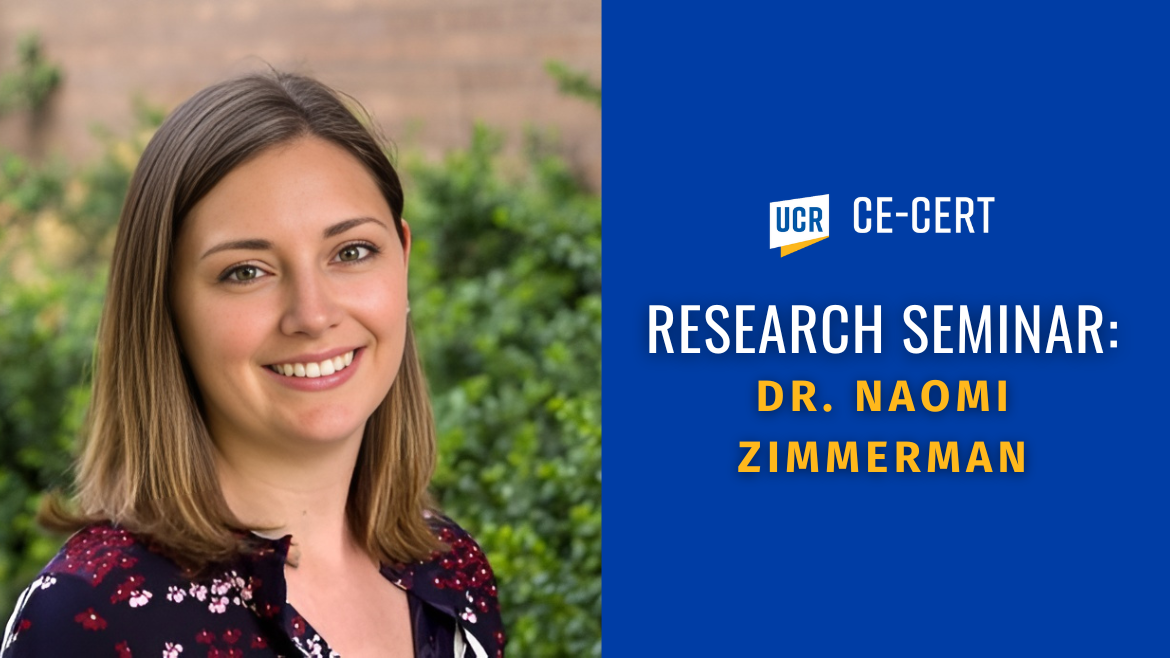
Join us as we listen to Dr. Naomi Zimmerman, Asst. Prof at University of British Columbia and the Canada Research Chair in Sustainability, at the upcoming CE-CERT Research Seminar Series. Dr. Zimmerman's expertise lies at the intersection of air quality research, technological innovation, and sustainability.
Event Details:
Date: Thursday, May 2nd, 2024
Time: 2:00 - 3:00 PM
Location: Hybrid; CE-CERT Room 105 or Zoom (https://ucr.zoom.us/j/93257814464 Meeting ID: 932 5781 4464)
Bio:
Dr. Naomi Zimmerman is an Assistant Professor in Mechanical Engineering at the University of British Columbia and Canada Research Chair in Sustainability. She is the Principal Investigator of the Integrated Research in Energy, Air, Climate, and Health (iREACH) lab. Her research is focused on the effect of technology shifts and policy interventions on air and climate pollution, with a focus on the transportation and energy sectors. Prior to joining UBC, Dr. Zimmerman was a postdoctoral researcher at Carnegie Mellon University in the Center for Atmospheric Particle Studies (CAPS) and she holds a PhD in Chemical Engineering & Applied Chemistry from the University of Toronto.
Title: From Concentrations to Context: Translating Air Quality Data into Meaningful Outputs
Abstract:
Increasingly, real-world measurements are being used by academics, government agencies, and community organizations to understand local patterns of air quality and the impacts of sources such as traffic, industry, and wildfires. However, there is a disconnect between reported concentrations and being able to address/answer questions of interest to users, which include understanding spatiotemporal patterns, air pollution exposure, emission factors, and indoor-outdoor pollutant exchange. In this talk, I will give an overview of different data treatment and modeling strategies to measure air quality in complex real-world contexts with an emphasis on generating outputs that are more interpretable and actionable for user groups. This will include an introduction to data treatment methods such as isolating short-lived pollution events from persistent pollution enhancements and integrating wind data into the analysis, and then go on to discuss examples at different spatial scales: (1) building scale for indoor-outdoor exchange, (2) near-road scale for emission factors, (3) neighborhood scale for community advocacy and cumulative hazard assessment, and (4) city scale for land use regression and exposure estimation. This will draw upon case studies from across Pittsburgh, PA, Vancouver, BC, and Uttar Pradesh, India. Lastly, I will briefly touch on strategies for knowledge dissemination of maps or models built with air quality data, since these networks are used by disparate groups who may benefit from knowledge sharing that goes beyond traditional academic approaches.